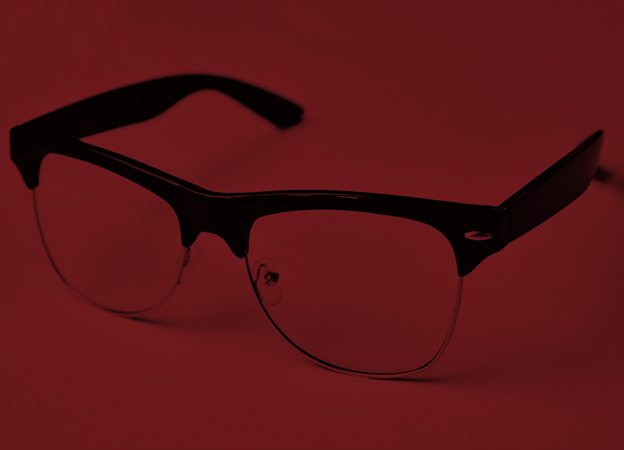Preservatives: The Hidden Danger of Eye Drops
Preservatives are present in many products we use every day – including eye drops. They help protect freshness, increase usable shelf life, and minimize bacterial, fungal, and amoebal contamination in multi-use products. It is important to understand that when it comes to eye drops, preservatives can pose significant harm to the health of your eyes as well as your vision.
What Harm Is Caused by Eye Drop Preservatives?
Many who periodically use eye drops with preservatives experience no noticeable discomfort or ill effects. Unfortunately, some do. While using an eye drop with preservatives once in a while to clear up an irritation or infection is unlikely to cause permanent damage, the likelihood of suffering harm is amplified with increased frequency and length of use. If you typically use eye drops many times each day, you may want to consider a preservative-free version. The potential for harm caused by exposing the eye to excessive and continual application of preservatives may include:
Eye Irritation, Discomfort and/or Pain
Eye Redness
Blurred / Diminished Vision
Allergic Reactions (including itching, swelling, dizziness & breathing difficulty)
Development/Worsening of Dry Eye Syndrome
Poor Post-Surgical Outcome
Damage/Destruction of Cornea, Conjunctival Goblet Cells, Lachrymal Glands & Oil Glands
Ocular Toxicity
Epithelial Damage
Tear Film Instability
Ocular Surface Disease
Deep Tissue Damage
Unpleasant Side Effects
If you experience these or other symptoms of concern following use of preservative-laden eye drops, you should promptly seek assistance from your ophthalmologist and/or a qualified healthcare professional as appropriate.
Why Can Preservatives Be Harmful?
Preservative chemicals are used because they are known to be toxic. They harm or kill bacteria, fungi, and other live agents. These properties may also damage our bodies – especially the sensitive ocular cells and tissues in and around our eyes. This type of harm is referred to as ocular toxicity.
How Can I Know If My Eye Drops Contain Preservatives?
Read the label, call the manufacturer, or visit their website. Some of the preservatives commonly used in eye drops, artificial tears, and similar ocular drops to watch out for include:
Benzalkonium Chloride (BAK) – Detergent known to cause inflammation and cellular damage
Chlorobutanol (Cbl) – Detergent known to inhibit oxygen use in the cornea and harm other vital cellular functions
Methyl Paraben (MP) – Chelating agent shown to result in significant eye irritation
Sodium Perborate (SP) – Oxidative agent known to result in disruption of protein synthesis and other vital functions leading to cellular death
Stabilized Thimerosal (Thi) – Organomercurial agent of a particularly noxious nature. Shown to cause cell retraction, cessation of mitosis, severe neurological damage, and cellular death even with exposure to minute concentrations at minimal exposure time
Preservatives are not the only toxins found in eye drops! Often, the chemical agents themselves are harmful. For example, Hypromellose, a popular eye lubricant used in artificial tears, has proved toxic to cultured human corneal cells in laboratory studies. Saline, EDTA, and buffering agents may further contribute to toxicity.
Are Preservatives Necessary?
No. Eye drops sold in single-use, disposable packaging and specially designed bottles that prevent bacterial contamination do not require the use of preservatives. These are widely available for purchase online and in most pharmacies and retail stores.
Help! I Can’t Find a Preservative-free Version of My Eye Drops
For various reasons, some brand manufacturers choose not to offer their product in a preservative-free variant. Unfortunately, many prescription eye drops are not offered without added preservatives, either. If you regularly use eye drops that include toxic preservatives, be sure to talk with your eye care professional. Ask whether a suitable preservative-free version or a safer alternative is available.
Eye Drop Alternatives
Non-toxic and less toxic alternatives to preservative eye drop usage may be available. When possible, these may be considered to help alleviate or resolve issues affecting the eyes that are otherwise being treated with preservative-laden eye drops. For example, if the eyes require a lubricating drop, autologous serum eye drops (ASED) are worth considering. These are produced from the individual’s own blood serum and can typically be used for up to 12 weeks without added preservatives. For dry and irritated eyes, eye ointments, herbal preparations, warm compresses, and other less toxic remedies may be helpful. Always consult with your doctor or trusted healthcare professional for advice before using these or any other substances or treatments in or near your eyes.
Contact Wise Eyes Optical
Your Hometown Vision Center Serving Central Pennsylvania
Your local Wise Eyes Optical hometown vision center is here to help you achieve the best possible vision for life. We offer expert eye and vision care including eye-related medical care, custom fitting of eyeglasses and contacts, eyeglass repair, and much more. If you have questions or would like to learn more, reach out to your nearest Central Pennsylvania Wise Eyes Optical office. For assistance, call (717) 242-1915.


